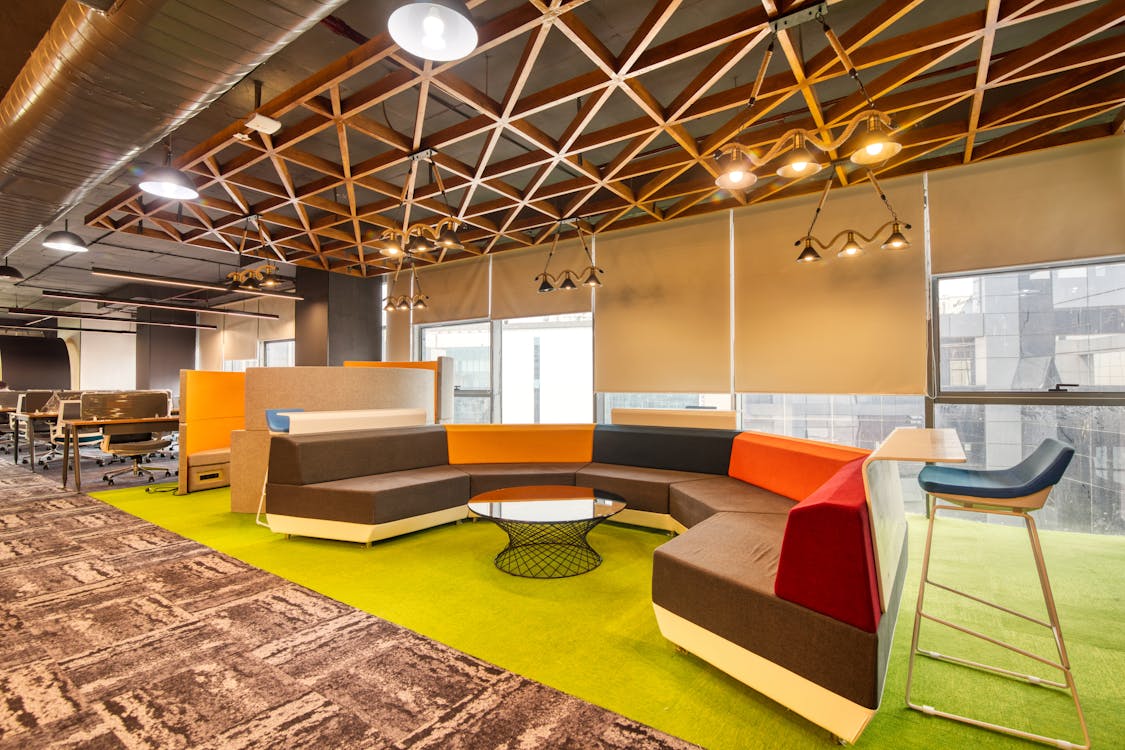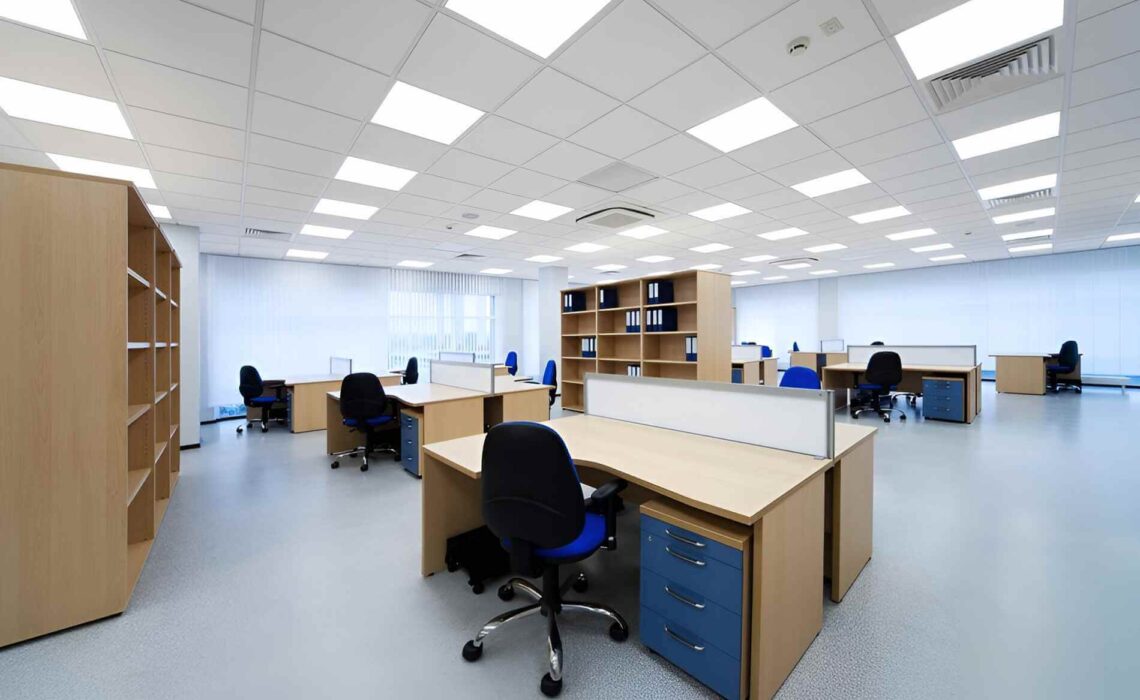Running out of space in your office for essential materials and supplies? Storage facilities can come to the rescue. In this blog, let’s delve into storage units and discover how they can be a game-changer for businesses with overflowing office items.
From optimizing space to keeping your inventory organized and protected, we’ll explore the benefits of using large storage units for temporarily storing your office materials. Embark on this insightful journey to explore how temporary office space in large storage units can significantly elevate your business efficiency and unlock its potential.
1. Space Optimization
Table of Contents
By relocating non-essential office materials and inventory to a dedicated storage space, companies can free up valuable rooms within their primary workspace. This enables them to create a more streamlined and organized office environment where employees can focus on essential tasks without unnecessary clutter.
For example, a marketing firm facing limited office space can store promotional materials, extra furniture, and seasonal decor in a nearby storage unit. This step allows them to create a more spacious and welcoming reception area, leaving a lasting impression on visiting clients. Additionally, an e-commerce business can store excess inventory, packaging materials, and shipping supplies in a storage unit, decluttering their warehouse and creating a more efficient picking and packing process.
2. Inventory Organization
When you consolidate your office items in a dedicated space, your business can streamline the inventory management, enhance accessibility, and improve overall efficiency within the office environment.
For instance, an advertising agency can use a storage unit to store promotional materials, event supplies, and excess office furniture. This arrangement allows the agency to keep its workspace clutter-free and ensures its team can easily access necessary materials when working on various projects.
Similarly, an IT company can utilize a storage unit to store spare computer equipment, cables, and hardware components. By doing so, they can create a more organized IT storage area and promptly respond to equipment malfunctions or replacement needs without delays.
By centralizing office materials in a storage unit, businesses can optimize their office space, improve inventory tracking, and create a more productive work environment. Efficient inventory organization saves time and minimizes the risk of misplacing essential items, thus fostering a smoother and more effective workflow for the entire office team.
3. Reduced Clutter

By decluttering the primary workspace, businesses can create a more organized and aesthetically pleasing office, improving employee morale and overall efficiency. For instance, a small startup company can use a storage unit to store excess inventory, paperwork, and equipment that are not needed daily. This allows the startup to keep its office space clean and uncluttered, providing a more inviting and professional atmosphere for employees and clients.
Similarly, a law firm can use a storage unit to keep archived legal documents and case files. By removing these documents from their main office space, the firm can create a well-organized and tidy environment, making it easier for lawyers and staff to access current and active case files promptly.
By adopting the practice of reduced clutter through a large storage unit, businesses can promote a more efficient workflow, enhance productivity, and create a professional and organized atmosphere within the office. A clutter-free environment allows employees to concentrate on their tasks without unnecessary distractions, ultimately contributing to the success and growth of the business.
4. Damage Protection
Opting for storage facilities equipped with climate control, security measures, and proper maintenance can safeguard businesses’ valuable assets from potential harm caused by environmental factors or unauthorized access.
A graphic design studio can store valuable artwork, prints, and prototypes in a storage unit with controlled humidity levels. Protecting these materials from moisture prevents warping, discoloration, and other damage that can compromise their quality and value.
Moreover, an architecture firm can store architectural models and delicate blueprints in a secure storage unit. By restricting access to authorized personnel, they can prevent accidental damage or unauthorized handling of these essential project assets.
By entrusting sensitive office materials to a reliable storage unit, businesses can enjoy peace of mind knowing that their valuable items are shielded from potential damage. This proactive approach to damage protection not only safeguards investments but also maintains the integrity of materials and equipment, ensuring they remain in top condition for future use and contributing to the overall efficiency and success of the business.
5. Flexible Rental Periods
Whether requiring short-term storage during a seasonal rush or a more extended period for project-related materials, businesses can find rental plans that align with their unique requirements. This adaptability allows companies to optimize costs and storage space, making it a practical choice for businesses with varying inventory demands.
For instance, a retail store experiencing a surge in inventory during the holiday season can rent a unit for a few months to accommodate the excess stock. Once the seasonal rush subsides, they can downsize or end the rental agreement, avoiding unnecessary expenses during slower periods.
Similarly, a small construction company working on a project can opt for an extended rental period to store construction equipment and materials near the job site. The flexibility to rent for several months or longer ensures that the equipment and supplies are readily available throughout the project.
By offering rental plans tailored to the specific needs of businesses, large storage units provide a cost-effective and versatile solution for storing materials temporarily. This flexibility empowers businesses to manage their inventory and workspace efficiently, adapting to changing demands and improving overall operational efficiency.
Store Your Office Items Now for Enhanced Efficiency
In conclusion, using a large unit as temporary storage for office items is a clever and advantageous approach for firms looking to improve efficiency and organization. Space optimization allows businesses to declutter their primary workspace and maximize productivity. Inventory organization streamlines operations and ensures easy access to essential materials.
By incorporating these practices, businesses can optimize their workspace, improve inventory management, and create a more productive and focused work atmosphere. Large storage units serve as reliable extensions of the office space. Businesses that embrace these benefits can move their operations forward, ultimately contributing to their success and growth in a competitive market.
- How To Create A Safe And Comfortable Home Environment For In-Home Care In Boca Raton? - July 16, 2024
- 10 Trendy Black Nail Ideas To Elevate Your Nail Game - May 6, 2024
- Getting A Free Divorce In Virginia? Here’s What To Expect - April 24, 2024





No Comments